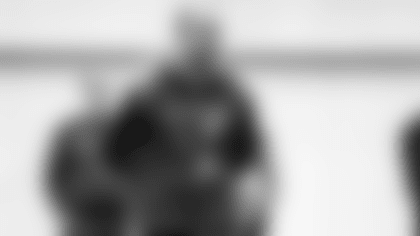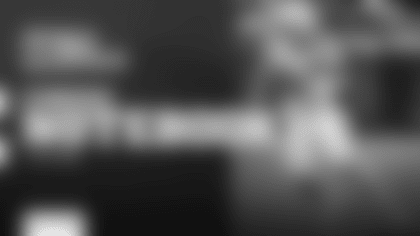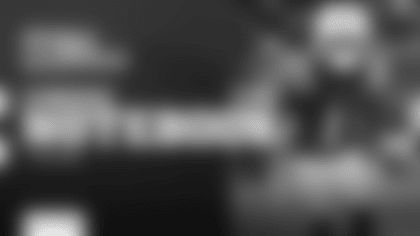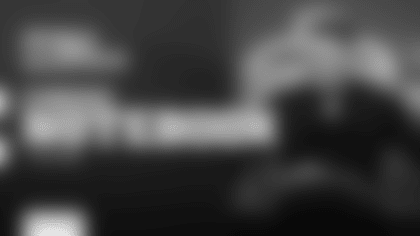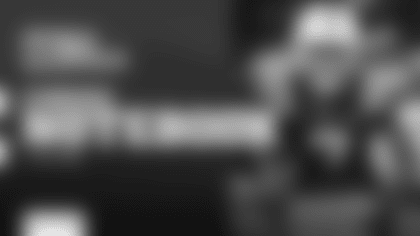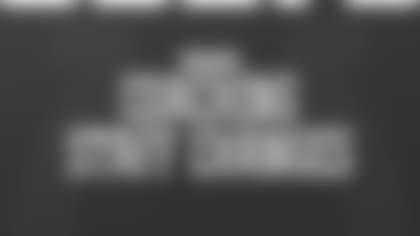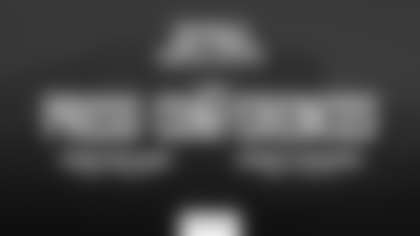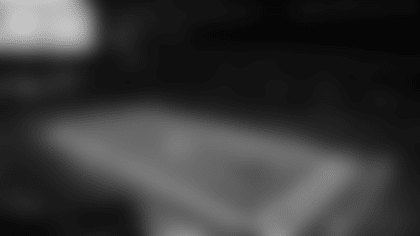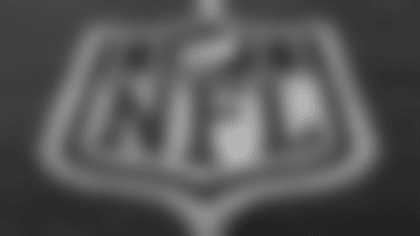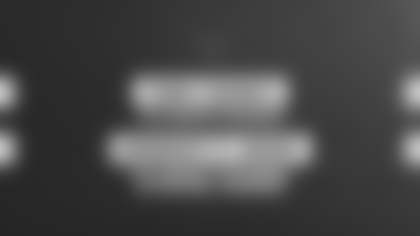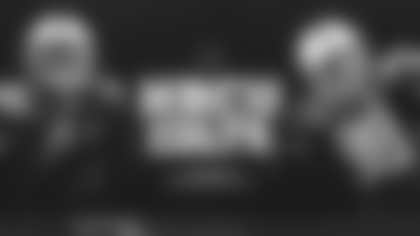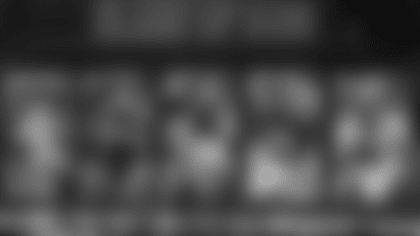Bill Polian is in his first season as Colts vice chairman after spending the previous 13 seasons as Colts president. Polian has a resume unique in the NFL. The only man to win NFL Executive of the Year six times, Polian in the 1980s built the Buffalo Bills into a four-time Super Bowl participant. In the mid-1990s, he built the expansion Carolina Panthers into a team that made the NFC Championship game in its second season, 1996. Since joining Indianapolis in 1998, he built the Colts from a 3-13 team in 1997 and 1998 into one that has made the playoffs 11 of the last 12 seasons, including AFC Championship game appearances after the 2003, 2006 and 2009 seasons, an AFC East title in 1999, AFC South titles in 2003, 2004, 2005, 2006, 2007, 2009 and 2010, Super Bowl appearances following the 2006 and 2009 seasons and a Super Bowl championship following the 2006 season. Each week during the season, in The Polian Corner, Polian and Colts.com will discuss issues pertinent to the Colts and the rest of the NFL.
The Polian Corner will run in two installments each week. Below is this week's first installment:
Q: That was two years in a row the team went to Foxborough under-manned and almost came out with a win. It was one of the most exciting games, wasn't it?
A: We went in with a great game plan. Coach (Jim) Caldwell, both coordinators put together a plan that given where we were from a personnel standpoint allowed us to compete. In the end, the game came down to our making some unforced errors, well semi-unforced errors, on offense and some mental errors on defense which were perfectly excusable because of the fact that we were running out of personnel and had people playing different positions which led to two (Rob) Gronkowski touchdown passes. By and large, (there was) a lot of improvement on defense. That game, given the matchup and given the status of our team going in and then given what happened during the ballgame – losing Jerraud Powers, Pat Angerer and (Terrence) Johnson, Pat and Johnson real early in the game on the first series – that could have been New Orleans (62-7). That team is comparable to New Orleans. We came within a recovery of an onside kick of having a chance to tie the ballgame with the momentum all on our side. We left seven points out there through offensive mistakes. A false start penalty which, while close, no question when you're in the red zone like that and on the goal-line and you go and they go, they're going to call it on the offense. They made an interception which was a great play by (Jerod) Mayo. Mayo made three great plays. Mayo tipped the ball (at the goal-line on the Colts' second possession) and (tight end) Jacob Tamme didn't have the opportunity to catch it cleanly. The ball probably should have been thrown a bit higher, not allowing him to get his hands on it. The interception, which was a phenomenal play by Mayo, that one you chalk off to (Dan) Orlovsky's lack of experience and Mayo's greatness. He made three terrific plays. Delone Carter's fumble, which Mayo caused, but really there's no excuse for that. This is professional football. The ball gets knocked out at the second and third level. He has to understand that and stop that. Would we have come out of that with a field goal? I don't know. For sure, we left seven points on the field. That's the difference in the game, and that's always the difference in the game in the National Football League. Having said that, as under-manned as we were going in and as under-manned as we became during the game, you really have to be proud of the effort. You really have to be proud of the fight, and you have to be proud of the job that Dan Orlovsky did. A great plan by both coordinators. The good thing about the defense is we started really fast when we had the first group in there. We got derailed in the last two minutes of the first half with the hurry-up offense, then in the third quarter in fits and starts. (Defensive Coordinator Mike Murphy) Murph and the defensive guys got it straightened out and we had a great fourth quarter. It tells you there's progress, a lot of it. We had a great week of practice on defense, so that was a real positive. We have to clean up the offensive stuff. If we can play that well against a team that's 9-3, that shows you there's hope and there are better days ahead. We just have to continue to build on that.
Q: Did they go to the hurry-up as part of their plan or because of the Colts' personnel issues?
A: It was a combination of both. They recognized that we had lost our nickel back and our middle linebacker. Then, we controlled the ball for virtually the entire first quarter. They weren't getting anything done, so they decided to step on the gas and put us in a position where we couldn't substitute and hopefully wear our rushers out, which really didn't happen. We were able to get the rushers in and out of the game. We did actually play some in third and fourth quarter with our base group, with all three linebackers in the game, which is what led to the two touchdown problems because there's a coverage that can handle that but the linebackers aren't used to executing it. We had to move Antoine Bethea to nickel back, so he wasn't in the back (of the secondary) coordinating all that as he usually does. That became a real problem. We got it straightened out and did a better job in the fourth quarter and gave ourselves a chance to win. You can't ask for much more than that, given where we are from an injury-standpoint.
Q: Dan Orlovsky had great numbers and he seemed to do well, didn't he?
A: It was a good plan. It was a plan that was suited to Dan, for what he could do. We wanted to run the ball 30 times, and I think we did. We probably should have run it a few more (times). The bottom line is no one's going to be perfect. I thought Dan did a terrific job. He took some really, really vicious hits and bounced right back up and kept coming and made some great throws. All of that is really positive. You can't say enough good things about the plan that the coaches put together. It really was the right plan under the right circumstances. I think we were 22- or 21-point underdogs, which supposedly is the largest point-spread in the history of the National Football League.
Q: Any updates on injuries?
A: (Jerraud) Powers and (Terrence) Johnson are serious injuries. I won't know anymore until we talk to the doctors a little later. The bottom line is those I think are going to be long-term. Pat Angerer, I do not know. A.J. Edds, I do not know. Those were the major ones. We'll have to probably make some roster moves. We'll see what happens a couple of hours from now when we get everything squared away.
Q: I thought the inability to get to Tom Brady and allowing him to put up 31 points really hurt us. Do you agree?
A: There's no question about that. That team scores a lot. They're a very potent offense. As I said at the outset of the show, that (game) conceivably could have been New Orleans (62-7) all over again, but for a very good game plan by our coaching staff on both sides of the ball and a very good overall concept by Coach Caldwell. The issue with them is always that you have to get interior rush. The outside rush is not going to affect him (Brady) too much. The way it affects him, is that if you keep coming and you get inside pressure and force him off his spot, then you can get sacks or knockdowns or errant balls, as happened in the second half when Tyler Brayton and Ricardo Mathews got going as a tandem and began to execute stunts and get a lot of pressure. Robert (Mathis) and Dwight (Freeney) were squeezing – Robert played a heck game, by the way – hard and forcing him to move and we got some good plays. Without that inside rush, it's very difficult to stop it. He'll just dump the ball, and he was doing that virtually the entire second and third quarters. It's hard to prevent him from getting completions. That said, the philosophy of our defense has changed completely. We're back to what we used to be, which is we believe three five-yard passes are better than one 20-yard pass. We're going to give up some passes and make the tackle afterwards and hope that by the time they're down in the red zone they make a mistake or cough the ball up, or later in the game the receivers are tired of getting hit. You get bounce-offs and interceptions and things like that. As our defensive coordinator Mike Murphy said, we were in three situations where we had third-and-long in the second and third quarters in drives that resulted in touchdowns where if we had gotten a sack or gotten a hurry or gotten a deflected ball, we're off the field. The principle culprit there was the inside rush. We have to get that improved. We have to get the right people in there. That said, the two guys who were scheduled to do it, Drake Nevis and Eric Foster, are on the bench with injuries. In Nevis' case, I don't know when he's going to be back and Foster's gone for the year. Bottom line, we're a little depleted there. The inside rush is what you have to have to beat him. There's no other way to do that.
Q: When it comes to off-season personnel moves, I see a lot of former players with other teams. How has that contributed to our 0-12 start?
A: The answer to that would be 'no.' Matt Giordano was actually out of work for a little while and came back last year with Green Bay largely because Dom Capers liked him during the time he played here. He essentially was a backup player and a good special teams player. Fellows like that, when they reach free agency, you really can't afford to keep them any longer. The salary cap is the over-arching issue here. We can't make personnel judgments in a vacuum. The salary cap squeezes you, and it's designed to squeeze good teams. It's designed to take depth away from teams. It's designed to take starters away from teams. In Charlie Johnson's case, we were trying to bring him back. He went to Minnesota on a far larger contract than we had room for. Don't forget the salary cap this year came down about $5 million from what it was last year, and that's ironically what he signed for. I believe it was $5 million a year. We weren't able to bring him back. He's playing, but they're in the same boat we are, basically. I don't think that made a heck of a lot of difference. (Clint) Session is hurt, and he went to Jacksonville on a $5 million a year contract. He's on injured reserve right now. We didn't feel medically that that was a good risk for the money. Again, that's a salary cap issue. The player who has played best is Tim Jennings, who we were really worried about from a medical standpoint. Tim, to his credit, has gone to the exact, same defense in Chicago and played actually better than he played here. That one is one I would like to have back. The others were really salary cap issues much more than anything else and the question of, 'Are you going to get full value for the money you spend?'
Q: How is Peyton Manning doing?
A: As you may have heard last week, he got the go-ahead from Dr. Watkins to ramp up his rehabilitation routine, and that will begin, probably has begun, today. I have not been back to the training room in about an hour, but that's a step in the right direction. We will continue with that. There will be some discussion over the next two-three weeks as to how far he's progressed. I'm sure Dr. Watkins is going to want an update. Then we'll take a look as we head a little further down the road and we see how he tolerates this new and more strenuous rehabilitation routine. That's all I can tell you because that's all we know at this point.



